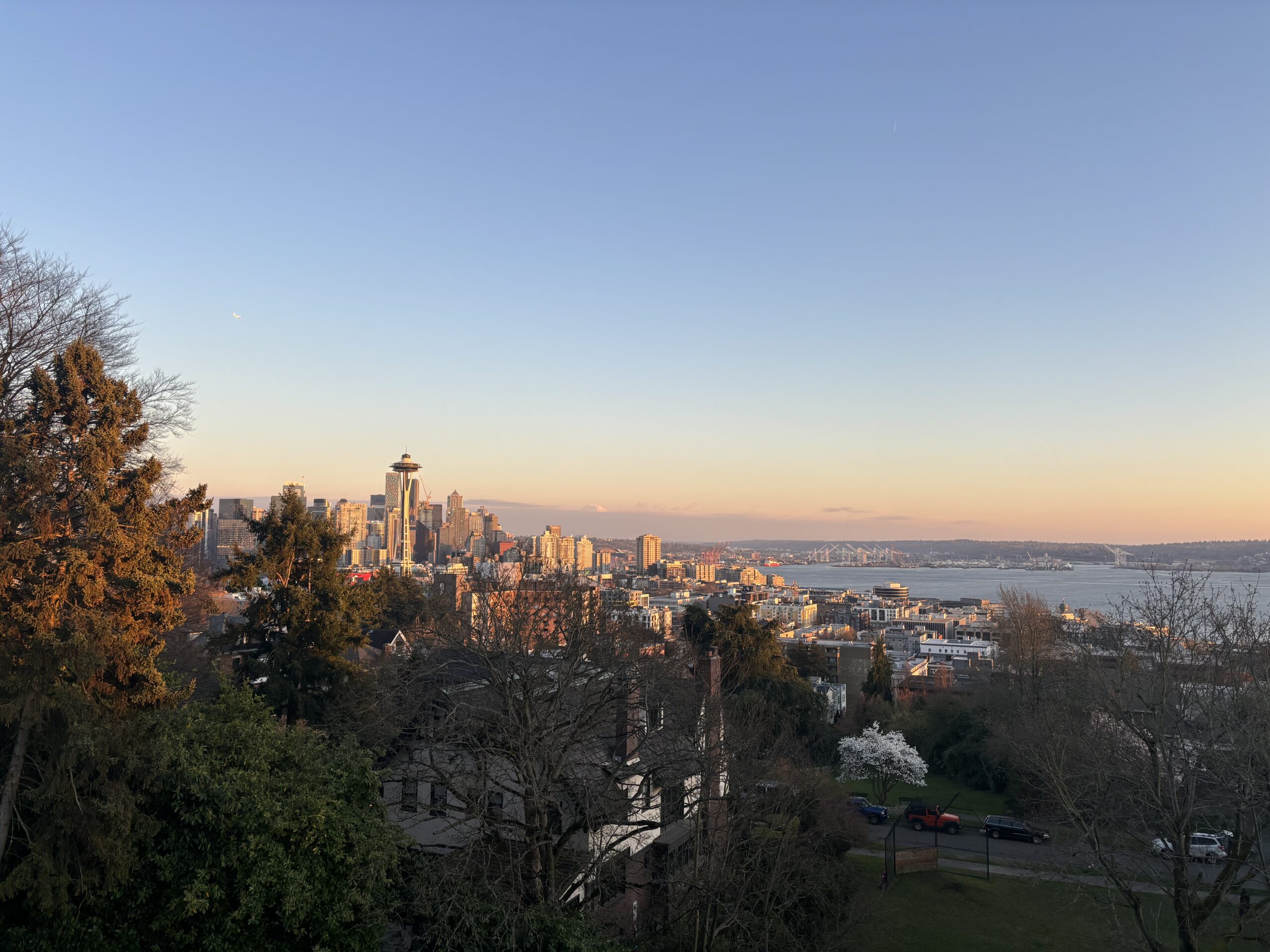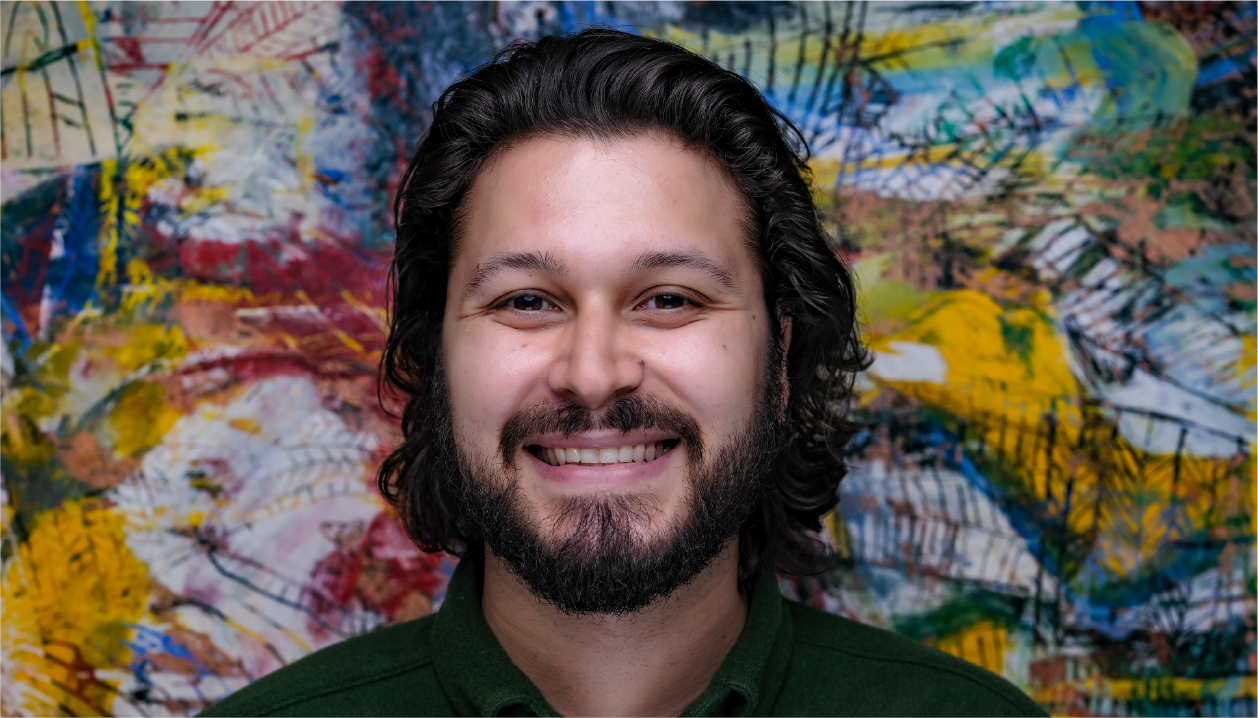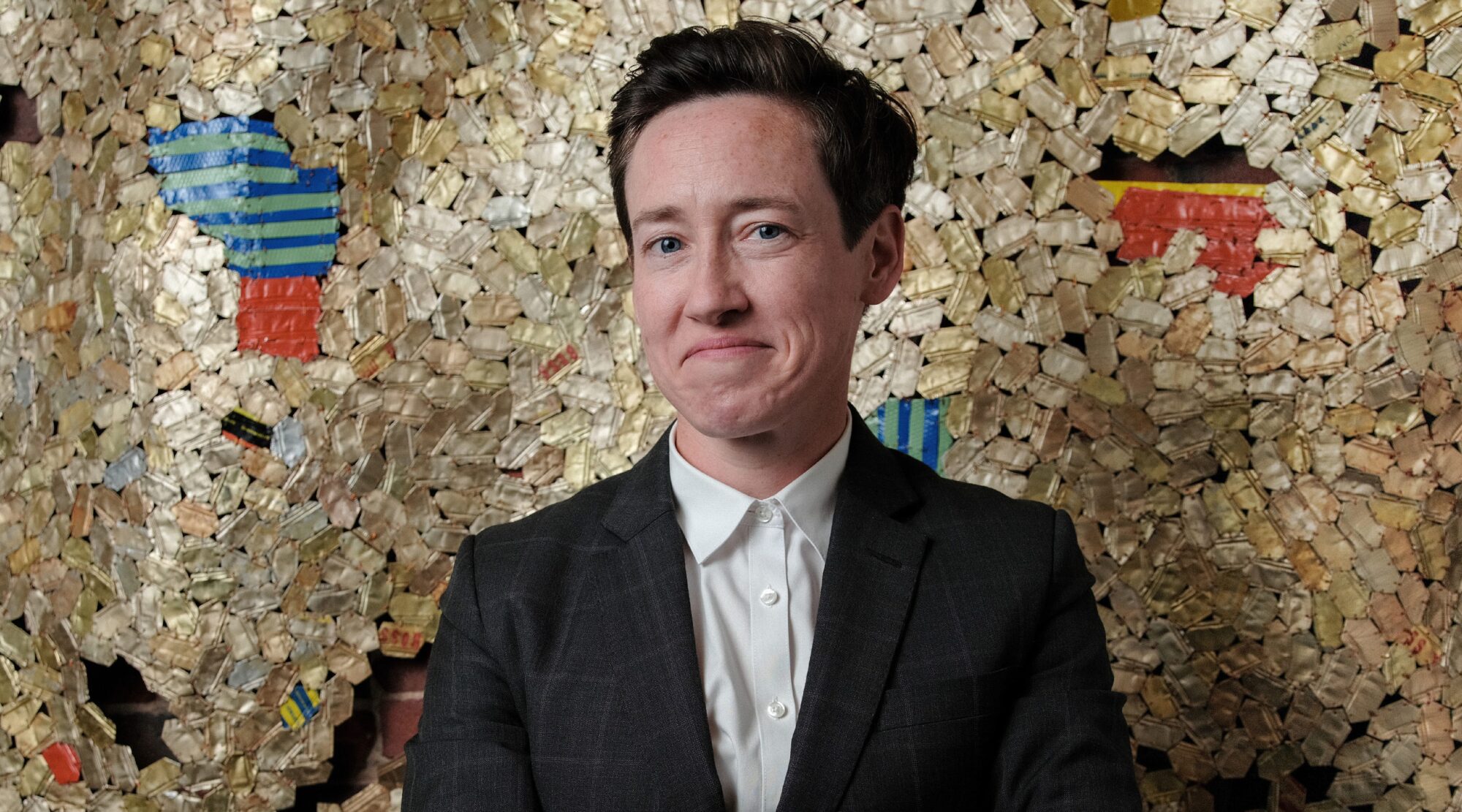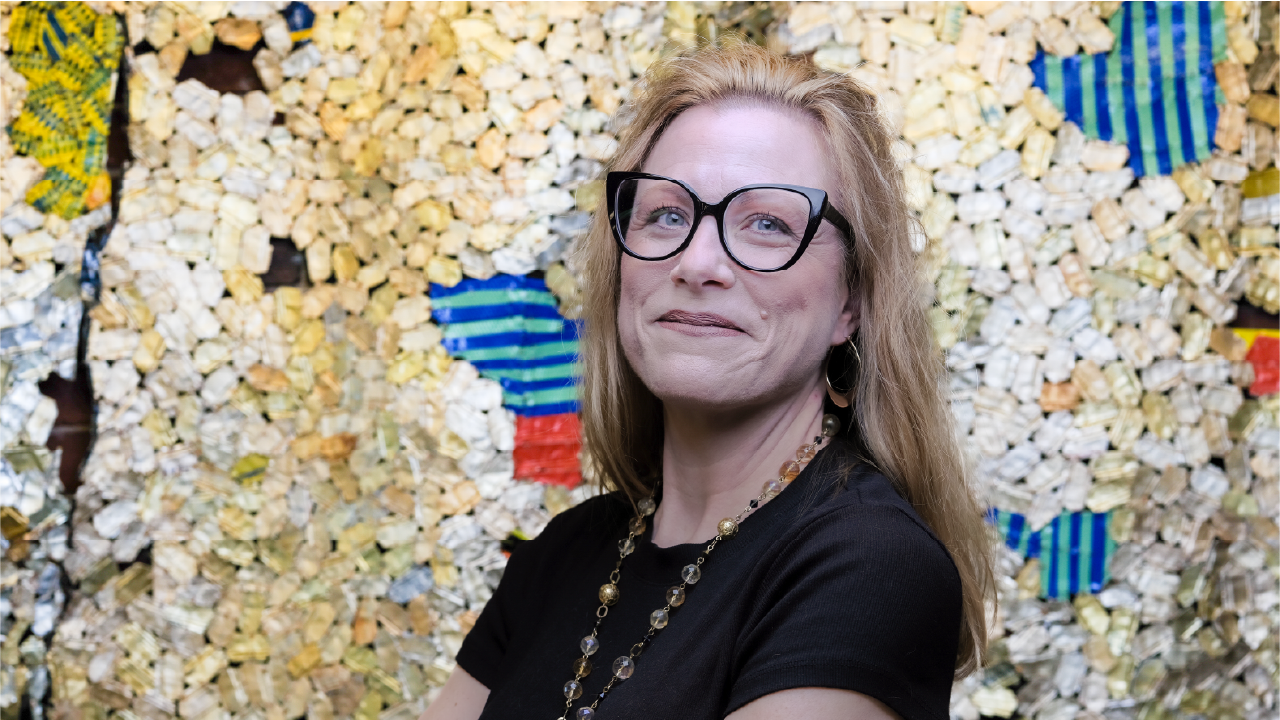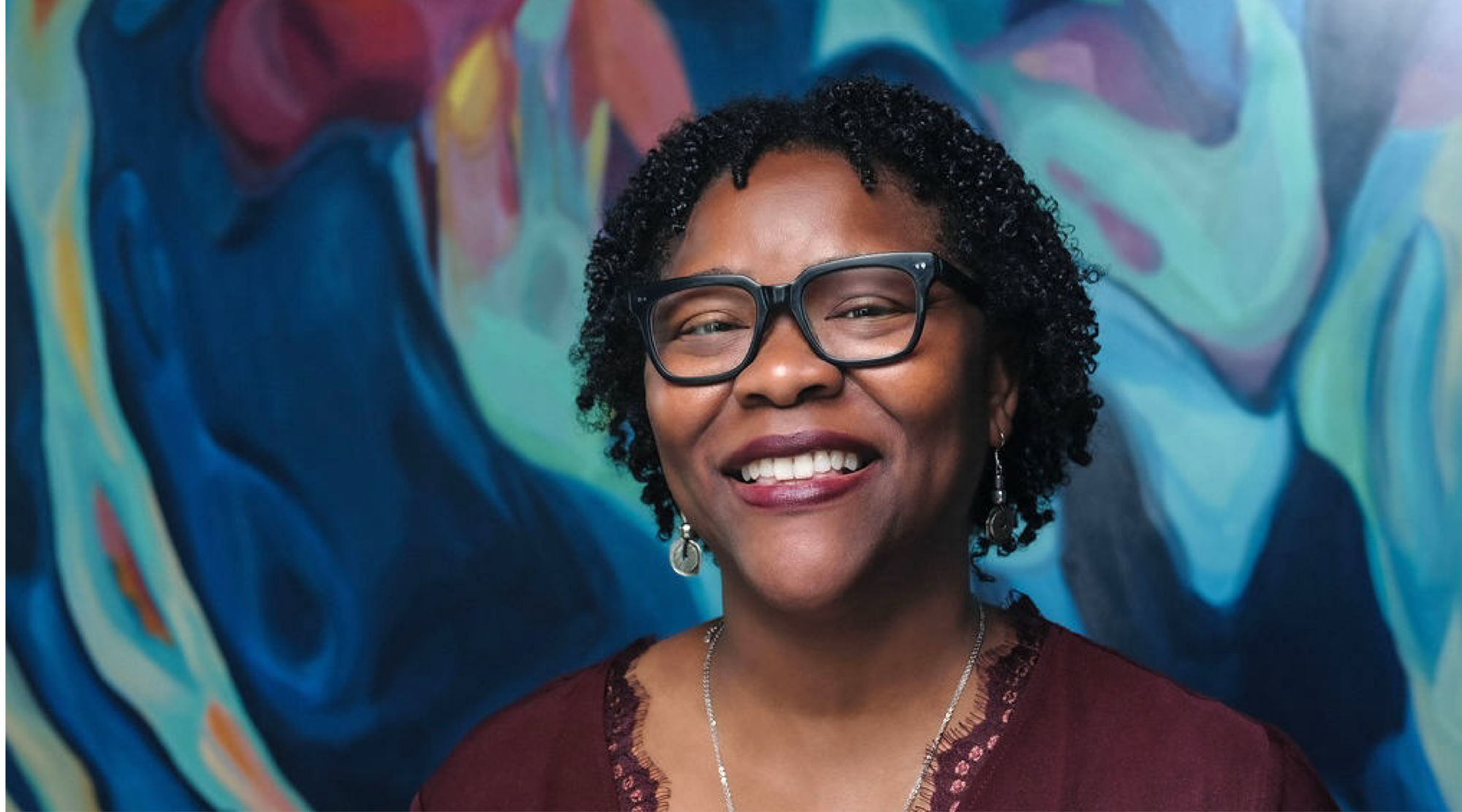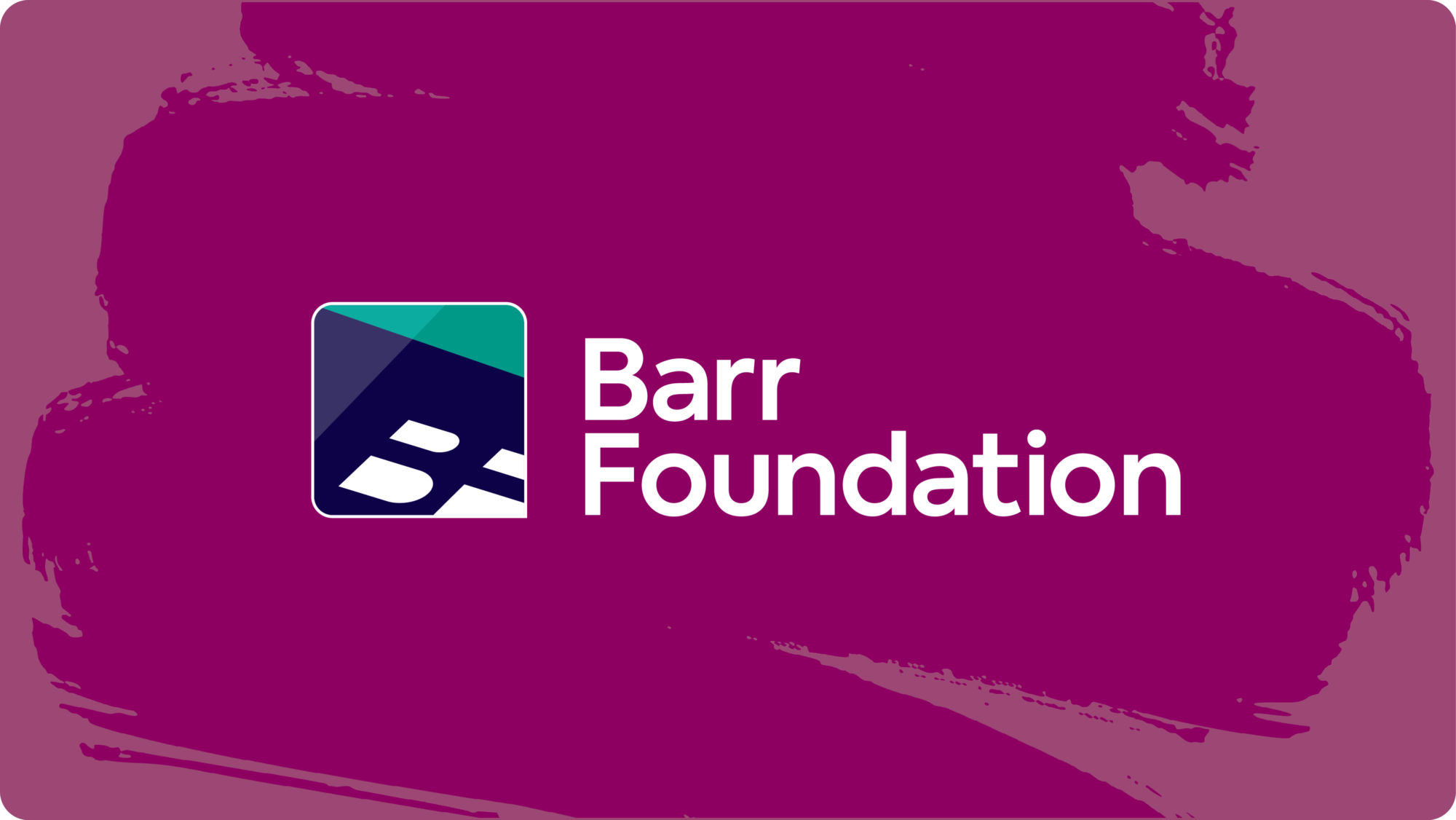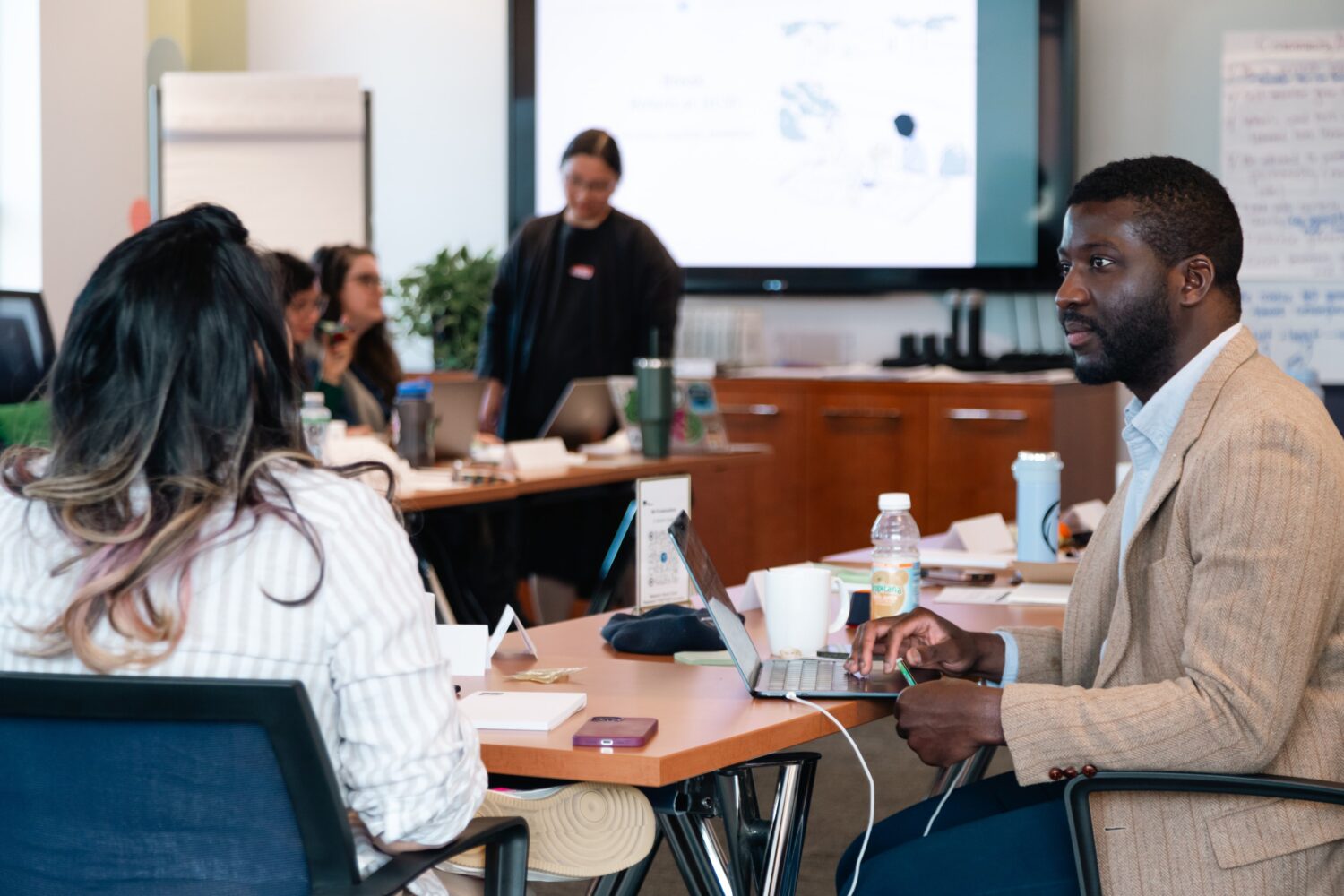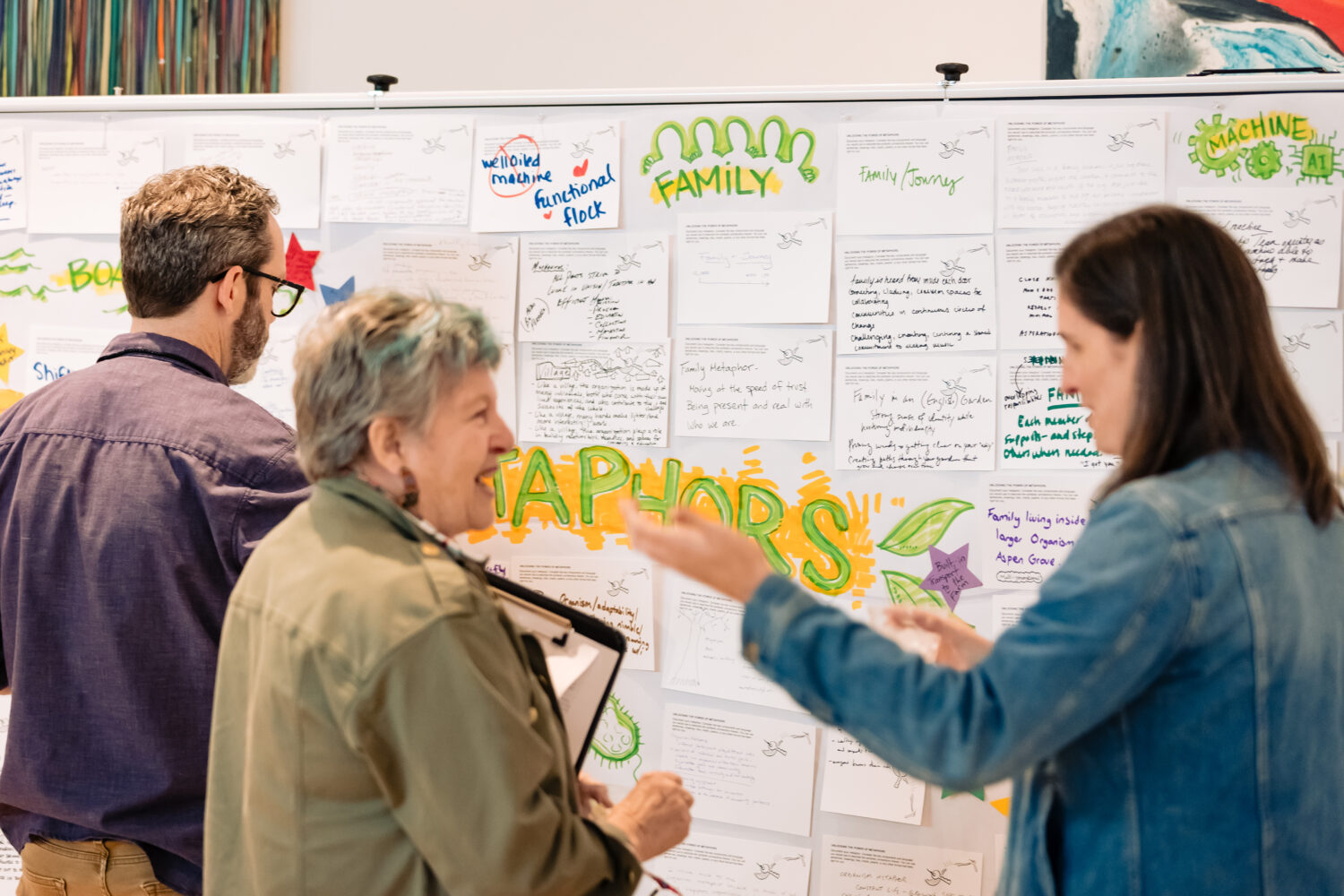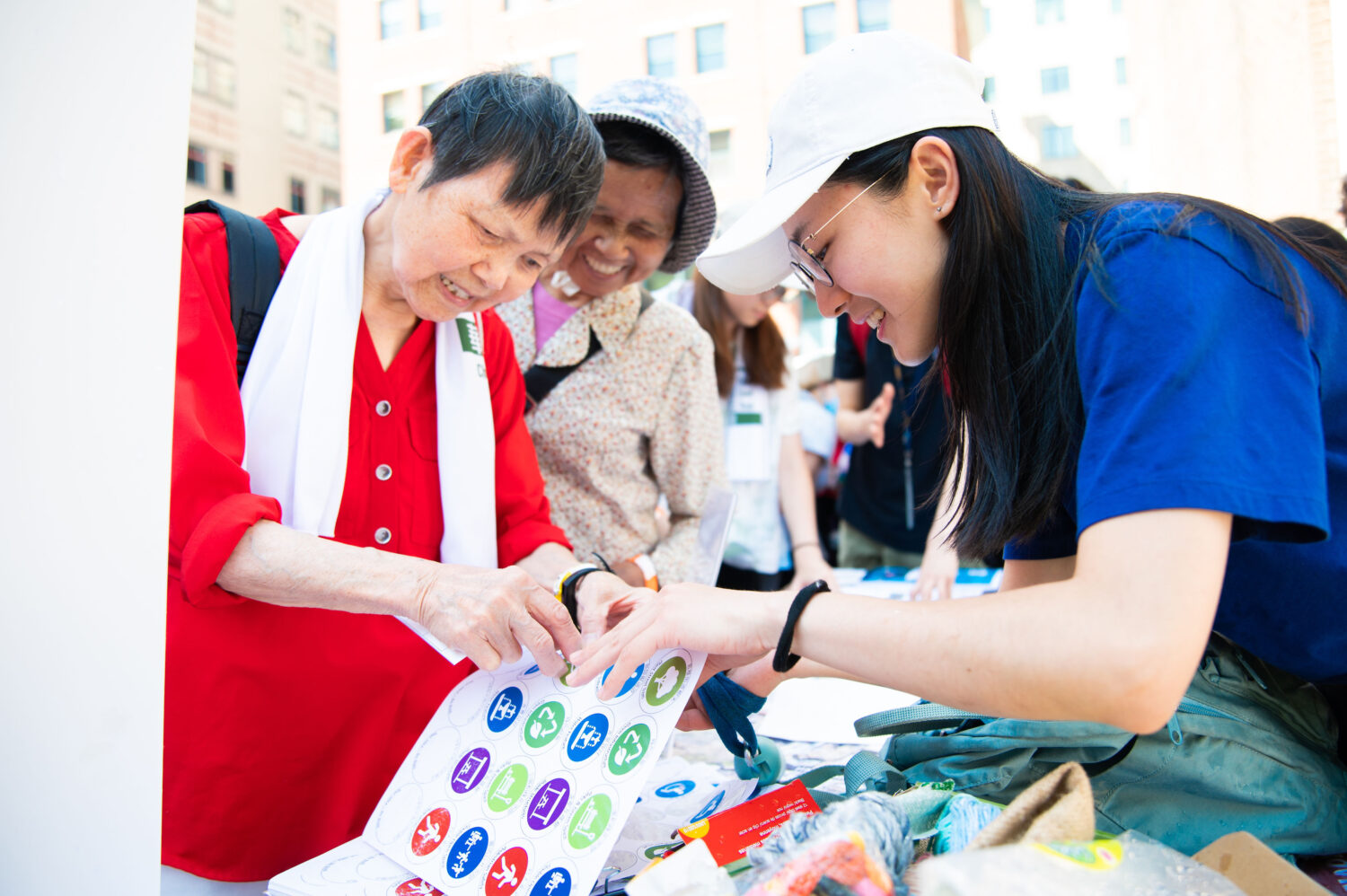In March 2024, several people from the Barr Foundation traveled to Seattle, Washington to attend the PEAK Grantmaking convening, whose theme was “Reimagining”. The group included people from a cross section of roles and teams at the Foundation. To get the most out of the convening, we used a WhatsApp group to stay connected and strategize – and to embrace our grantee and consulting partners along the way. We came away with a shared experience that gave us lasting personal and professional memories that will help improve our work in the short- and long-term.
Once we returned, some of us chose to document our experience in a shared blog post. We sought to each share one lesson from the convening that resonated for us and how we seek to incorporate it into our own work. Focusing on one thing was a challenge for many of us, but we hope that each of the reflections below help spark thoughts about the work that all of us in philanthropy can do to generate positive change.
Empower Your Journey: Discovering PEAK for the First Time
By Lynn Harwell, Vice President for Administration
This was my first PEAK Grantmaking convening. While seasoned attendees, like Kerri (17th PEAK convening), were well-versed in navigating this 8,000-member community, I wondered how they’d treat the newbies. Attending the 8-hour, abbreviated Grants Management 101 workshop, I was wonderfully welcomed and could feel how intentionally the convening was designed to support both first time and repeat attendees.
For those considering participating in PEAK, here are three key insights that might help jumpstart your experience:
Unlocking PEAK: PEAK is an acronym, which stands for Principles, Equity, Advocacy, and Knowledge – This sums up the wide range of learning experiences offered throughout the convening. Each session provided insights and tools to propel our philanthropic endeavors forward. Sessions including “Grantsformation” and “Aligning Knowledge Management and Grants Management to be a Learning Organization” showed pathways to improve the grantee experience, save time in our processes, and leverage technology.
Shared values: PEAK’s values align with its membership, fostering supportive accountability – This year’s convening focused on reimagining philanthropy and advancing racial equity, which echo the core values of Barr and many other institutions. I sought to deepen my understanding of how other foundations were operationalizing equitable practices and how we can be more impactful in our work.
Leverage Grants Management: Grants Management teams can be integral in leading positive change across philanthropy – The spotlight on grants management showcased their role as hubs of knowledge and as translators supporting change within the philanthropic sector. I gained new perspectives on grantmaking, such as where there are “fake” rules. Embracing empathetic listening and seeking ways to reduce barriers for grantees and partners were underscored as essential principles. It emphasized the importance of centering people in our work, aligning our practices with our values, and embracing curiosity and humility along the way.
It was invaluable to spend time and have rich discussions with the PEAK community whether in keynote panels, breakout learning/training sessions, or over shared meals. The convening allowed us time to forge deeper connections and support each other’s growth as grantmakers no matter our individual roles. The PEAK convening ignited a collective vision for a more equitable and effective philanthropic future. I am inspired to have a transformative role enabling this work, so that Barr continues to lead with integrity, inclusivity, and impact. Join me in this journey of empowerment!

Align Grants Management Practices to Create a Less Burdensome Experience for Grant Seekers
By Joe Rodriguez, Grants Management Assistant
If you work in the philanthropic sector, you may have heard the phrase “If you’ve worked at one foundation, you’ve worked at one foundation.” When I first heard this little ditty, I chuckled (probably like most people). Upon returning from my second PEAK Grantmaking convening, centered around the theme of “Reimagining,” I believe philanthropy should consider reimagining the “One Foundation = One Foundation” mindset.
Throughout presentations, Q&A sessions and side-conversations I had at PEAK, two themes for me consistently emerged:
1) Foundations are funding and operating in vastly different ways to accomplish similar outcomes, primarily effective movement of funds to grant seekers
And
2) Grants management teams have adapted practices to meet the nuances of these strategic operations.
These two items aren’t necessarily “problematic” – but in philanthropy, where the rules are pretty set in stone (thanks IRS!), it appears that there’s opportunity to pivot from strategy informing grants management to having more common grants management practices inform grantmaking. Many presenters at PEAK shared their unique reporting, application, and approval processes, but there lacks clear consensus of grants management practices across foundations. Diversity in this methodology causes grantees to bear the burden of adapting to each foundation’s unique processes.
Convenings such as PEAK’s are incredibly useful for building collective knowledge and supporting other grantmakers, but for this benefit to be fully realized by the entire grant-seeking population, collective dialogue must translate to collective action. Grantseekers shouldn’t be met by hundreds of different processes each time they seek funding.
Instead, let’s strive to reimagine a simpler future for grantees by:
Encouraging participation of not only grants management staff, but other staff (program staff especially welcome!) in convenings such as PEAK to further collective knowledge and understanding of sector grants management practices
Increasing internal dialogue about finding where isolated foundation practices can be adjusted to fit a more common approach
Empowering grantees to candidly express if practices are vastly different than other funders
Collaborating with other foundations intentionally to align these practices for more familiar experiences for grantees
If grantees work with one foundation, they shouldn’t come away with only the knowledge of working with one foundation. Let’s reimagine a future where one foundation experience is a welcoming introduction to our sector that sets them up for future success with other funders.
“Who Are You Uninterrupted?”
By Leah Bennett, Program Associate, Education
As a first time PEAK attendee, I was struck by the consistent encouragement to think both on the individual and organizational levels—how can what we learn shape us as people, practitioners, and organizations?
After three full days of inspiration, I thought I had surpassed the point of saturation. And yet, the final session, a four-person panel of two foundation presidents and two directors of grants management, hit me right over the head. They discussed how they have been developing themselves individually and as leaders of organizations undergoing transformations. Among the wisdom shared, The Skillman Foundation’s President and CEO Angelique Power charged us with a call to action, quoting Felecia Hatcher: “Who are you, uninterrupted?”
At the organizational level, I was immediately reminded of Barr President Jim Canales’ pledge in January that Barr remain steadfast this year. There are so many potential distractions on the horizon—much that relates to the presidential election, for example. Staying the course means we must continue to be driven by our values and pursuit of equity, despite any challenges that may arise. We must hold central our vision for a world that will be inclusive and supportive of all future generations.
But who am I uninterrupted? Much of how I have structured my life and work is to be responsive to the needs of those around me, to colleagues, and my organization. Felecia Hatcher’s words made me realize that this kind of responsiveness could prevent me from really living my own values. After this panel, I’m asking, “How do I root myself and my own work in order to step into my full power and purpose?” While I don’t yet know the answers, I am committed to continuing this interrogation and self-refocusing.

Do Work That Will Make Mom Proud
By Rory Neuner, Senior Learning Officer
My first time attending the PEAK conference was supposed to have been in Seattle in March 2020. My Mom was going to tag along for the non-conference part of the trip so that we could spend time together. We were excited! But the convening was canceled, one of the earliest cancellations of the COVID-19 outbreak. And then my Mom passed away unexpectedly later that year.
Four years later, I spent much of the convening thinking about her. On day two, I was a presenter in a session about Barr’s work to support transportation advocates. It’s an honor that my role in Learning and Evaluation at Barr means I’m able to partner with our Mobility team to advance learning about what works, and what doesn’t.
During the session, a familiar topic came up among us presenters – one that we’d discussed before as a team of program officers, learning and evaluation staff, and consultants. Why is it that our work in philanthropy is often so cloudy, so hard to talk about, even if we firmly believe we’re committed to advancing stuff that matters? Months ago, when we’d talked about this, we’d discussed as a group: what would it look like if our mothers could understand the work we do?
My Mom wouldn’t have understood what it meant to be going to a grants management convening. She’d have had no clue what emergent learning means. What would have resonated with her was the convening theme: reimagining. As a teenager in Detroit, she rode the bus to and from her waitressing job – an early taste of mobility, of freedom. That became impossible when her parents moved her family to the suburbs after the 1967 riots. As an adult she lamented that she didn’t have access to the future she imagined; eventually becoming a little old lady on the bus, getting where she needed to go. On public transit. In community.
Post-PEAK, I’m left with this thought: What about our world are we reimagining for our moms? Who can participate in the conversations we’re having together? Who can’t? Why? What will we do to build a world that makes sense to our mothers?

All Philanthropies Can Support Disability Inclusion
By Kerri Hurley, Director of Grants Management
I attended the Disability Inclusion Fundamentals session facilitated by Sarah Napoli, the learning services director at the Disability & Philanthropy Forum. She works to activate the philanthropic sector to eliminate more than just physical barriers, so that everyone has the opportunity to reach their full potential. Sarah shares knowledge from her experience of living with disabilities, including hearing loss.
We discussed the many non-physical barriers that people with disabilities face such as lack of access to healthcare and ableism, a form of discrimination that is used to devalue people because they are disabled. Sarah explained that we often hear framing that justifies people being denied access due to their personal “medical” problems, when the real issue is systemic practices that deny individuals rights.
We also learned that people with disabilities have and continue to advocate for comprehensive policies to protect rights. For example, the Americans with Disabilities Act (ADA) has put laws in place related to access, but it is the floor, not the ceiling. The United Nations’ Conventions on the Rights of People with Disabilities (CRPD) is the first comprehensive human rights treaty of the 21st century. According to the UN, the CRPD, “reaffirms that all persons with all types of disabilities must enjoy all human rights and fundamental freedoms.” While the United States has signed, it has not ratified the treaty.
As someone with a non-apparent disability, it was heartening to hear Sarah’s passion and to learn that there are ways that philanthropies, regardless of focus areas, can take steps to support disability inclusion. For example: when planning an event, rather than making people guess, you can proactively share information about the venue and what is available (e.g., elevators, wheelchair accessible bathrooms, quiet rooms) then ask if anything is missing. Something this small means a lot. You could prepare a packet or webpage with information that people with disabilities should know about your offices; or offer an accessibility tour before gatherings to familiarize people with the space and correct any issues in advance. These simple things can help people navigate, know what to expect, and feel seen. She praised PEAK for hosting some of its convening content in a hybrid format. What if all conferences were available virtually? What could that mean for access and inclusion?
Recently, Barr made the decision to sign the Disability Inclusion Pledge, and we hope others will too. Philanthropies play important roles in helping to foster welcoming communities, and we can all learn more and take action to support disability inclusion.
Use Small Moments to Prepare for Larger Movements
By Najah Casimir, Program Officer, Mobility
I co-presented a session that introduced people to the Ideas, Arrangements, and Effects (IAE) framework, which was created by a Barr partner, Design Studio for Social Intervention. The framework challenges people to inspect how ideas get embedded into arrangements, the operating systems of everyday life that produce a variety of effects. The practice of challenging existing arrangements and imagining new ones, is a tool for change.
Given that IAE creates a lens through which people can consider their work at all scales, my co-presenters and I were especially excited to “rearrange” our own session and model the framework:
Music welcomed people into the room. Blue Ivy’s “Brown Skin Girl,” and Pink’s “Never Gonna Not Dance Again” were the last two songs on the playlist, and set the tone of self-love and self-determination, which are both necessary components of philanthropic work.
We, the presenters, didn’t sit at the front of the room or next to each other – we chose whatever spot in the room felt best to us. This new arrangement required special attention to detail, including making sure that the person advancing the slides remained relatively close to the laptop. But, we felt more prepared, relaxed, and authentic sitting among the audience.
We worked with our “room monitor” to adapt the instructions.
- Instead of introducing us, she welcomed attendees and prepared them to hear from a group of “humans”. We then shared who we are, in our own words.
- We left the door open, literally, for anyone who wanted to, figuratively, join our story. We agreed it could be closed if a) we were risking violating fire code or b) we were causing a noise disruption to our neighbors. I was glad to miss out on the click/clank sound of conference venue doors and to see people moving freely in and out of the space as they wanted to.
Although small, these types of practices unlock the potential for bigger conversations and contexts. For example, in a variety of aspects of our work, we may all want to consider:
- How do we set the tone for conversations in a way that honors the culture that organizations have or want to build?
- When is it necessary to be at the front of a process, and when might everyone benefit from a different set up that is supportive of distributed leadership?
- What suggestions or prior practices are we now assuming to be rules? And what new opportunities might be created if we took time to ask what alternatives are available?

Thank You!
We are thankful to everyone who helped hold the PEAK convening, and shared their knowledge – whether from the main stage as presenters or the seat next to us as fellow attendees. We remain inspired to “reimagine philanthropy” and are excited to join in with others who are also taking up this charge.
Visit the PEAK Grantmaking website to learn more about the organization. To learn more about what was shared at the convening, check out these visualizations of big ideas or the social wall from PEAK2024.
